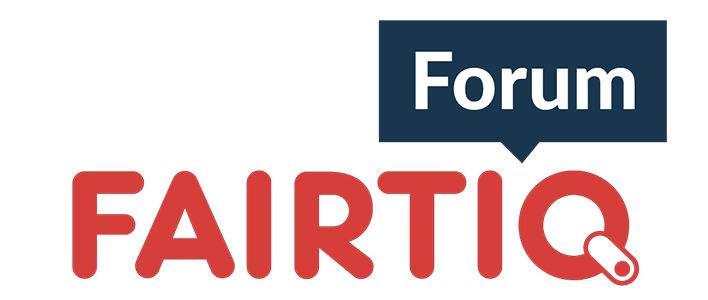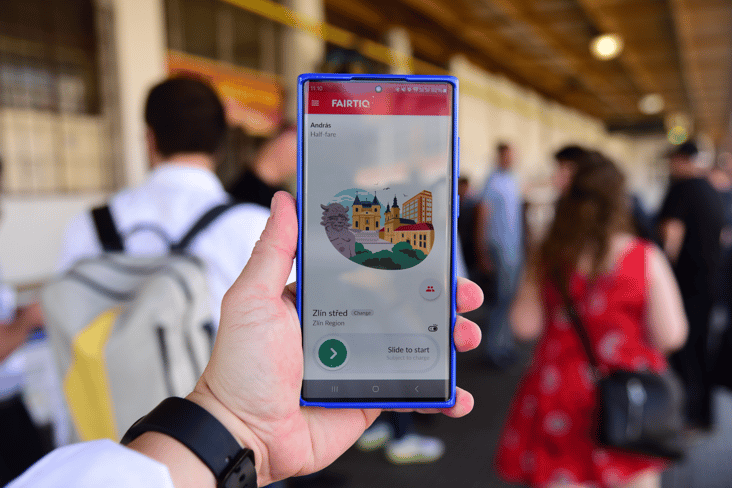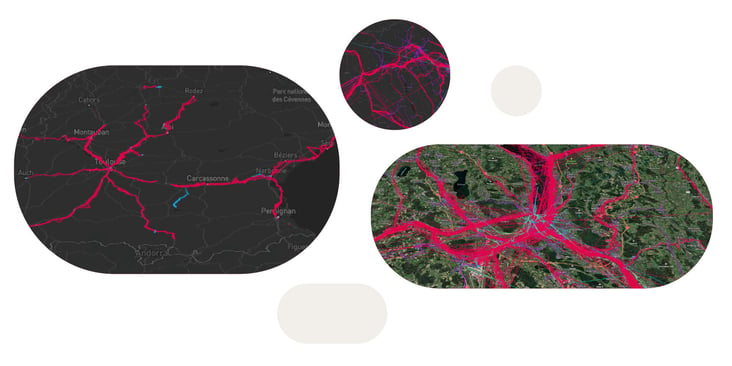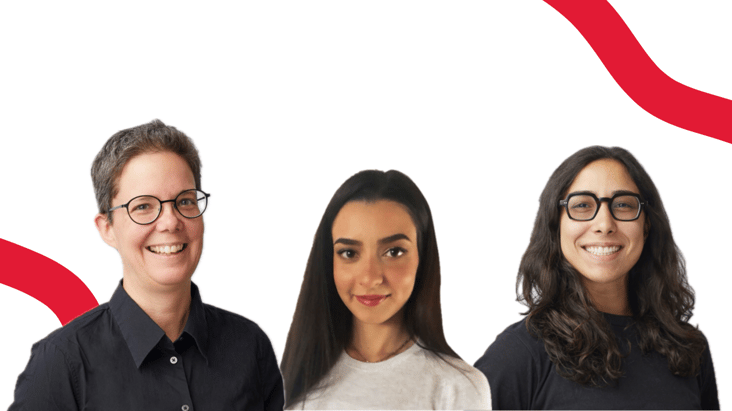
The virtual FAIRTIQ Forum took place on 17 and 18 November 2022. To round off the two-day event, FAIRTIQ brought together international transport experts from industry, academia and the public administration to talk about public transport pricing and sales policies in Germany, Austria and Switzerland.
Read the highlights from the panel discussion below.
👉 Here you'll find our blog post on the key takeaways from the FAIRTIQ Forum 2023 and the full panel discussion in German here.

Which is better: flat rate fares or differentiated fares? Are further fare reductions really the best way to increase passenger numbers? Will opening sales channels lead to their takeover by global players? What role does public transport play in relation to societal issues and in the current poverty debate? The panel explored these and other topics during a lively and sometimes heated discussion.
Cheap is not always better, free is almost always wrong
Low public transport fares are often seen as a panacea for increasing bus and train ridership. Such thinking quickly leads to political calls to make public transport free. Certain quarters see the Deutschlandticket, which will be launched in 2023, as a harbinger of zero fares. Panellist Johann von Aweyden, from the Deutschlandtarifverbund GmbH, did not agree. Funding a zero-fare policy would be difficult, "It's said that the Deutschlandticket will cost three billion euros and the zero fare 13 billion. The two things are simply not comparable."
Dr. Peter Füglistaler from the Swiss Federal Office of Transport also saw the free public transport fare as the wrong way to go, because it would only generate more traffic. He explained that quantity and volume are not the goal. The overriding objective is climate protection and the transition to sustainable energy sources. Dr. Wiebke Zimmer, from the Berlin-based think tank Agora Verkehrswende, also believes that it will take more than lower fares. To convince people to rethink their mobility practices, using the car also needs to become more expensive.
Best solution – a mix of flat rate and differentiated fares
On the question of "Flat rate fares or differentiated fares?", all members of the panel answered "Both". The ideal solution is a model that supports a variety of ticket types and fare schedules. It is also important to keep it simple so that customers can easily create a package that reflects their specific needs. Dr. Füglistaler sees an analogy here with the mobile phone sector, where customers now enjoy more freedom of choice thanks to the introduction of new pricing structures and the opening up of sales channels.
On the subject of sales, von Aweyden added that it is important to remember that not all customers are digital-savvy. In years to come, people should still be able to head to the premises of their local public transport provider and buy their ticket or travel pass directly from a physical point of sale that they trust, "We need to adopt a dual-track approach."
For Gian-Mattia Schucan, the CEO of FAIRTIQ, there are in fact more than two tracks open to the public transport sector. In terms of fares, there are lots of different opportunities to develop targeted pricing models that will not only increase passenger numbers but also better manage demand, such as on-/off-peak models and degressive concessions that promote certain types of user behaviour, from modal split to higher returns, "We can embrace more differentiation while also making things simpler for our customers."
Christian Hillbrand from the Vorarlberg regional transport association (VVV) wants to see greater intermodality and more consideration given to transport chains when thinking about ticketing and pricing. The goal should be to pick up people en route to the garage before they even make it to their car.
The Deutschlandticket is not a pricing innovation and is rather misguided
Germany's 9-euro ticket campaign in summer 2022 was a huge hit and hailed as a political success. However, our panel had a much more nuanced take on this tale with the supposed happy ending. For Dr Zimmer, "Sales figures are not the only mobility transition metric." For her, the most interesting aspect of the campaign is the insights it has generated. Besides confirming that pricing as well as a ticketing product that covers multiple regions and fare structures has an influence on ridership, Dr Zimmer noted that two of the key insights were greater public awareness of capacity constraints and feedback citing poor access. She pointed out that, "We need to expand provision. Affordable fare models and integrated ticketing have to be developed in parallel." She also finds the thinking behind the Deutschlandticket "rather misguided". It focuses too much on negotiating how funding is to be shared, while the aim of getting more people to switch from cars to public transport takes a back seat. Her conclusion: "There should be a roadmap that adopts a joined-up approach to funding, service provision and ticketing."
This was a view shared by von Aweyden, who added, "More targets need to be agreed and organisations must be committed to realising them. Mobility transition will take more than an overhaul of fare models. It is the supply end which is the decisive factor, but the right organisational structures need to be in place first." In his opinion, this was an aspect that Germany had neglected and now needs to make up for lost time.
To-do list: clear goals, sound organisational structures and funding guarantee
On the subject of organisational structures, von Aweyden said that Germany is looking to Switzerland and the Alliance SwissPass, an industry organisation that brings together all transport companies and associations in Switzerland. Dr. Peter Füglistaler from the FOT pointed out that there are areas where the organisation could make improvements. For example, Alliance SwissPass still finds it difficult to enforce decisions. One reason is current legislation which makes fare setting a matter for the public transport companies.
Christian Hillbrand confirmed that misguided thinking on fare innovation is a problem in Austria too, citing the example of the Klimaticket two years ago, which the country is still recovering from. The federal government had provided funding totalling 180 million euros but the problem was that a number of Austrian cities and regions like Vorarlberg and Vienna had already introduced similar concessions. What these places needed therefore was financial support to improve their service provision not to reduce fares. So, the government amended the rules. Applicants can choose between three options. They can elect to invest the funding they receive in the Klimaticket or in improvements to their transport services, or in their infrastructure. Contractual regulations ensure that the financing is also secured in the long term.
+ = 0: the formula behind inspiring and innovative fare models
Moderator Paula Ruoff asked, "If the Deutschlandticket is not a real price innovation, what does a truly innovative fare product look like?" FAIRTIQ CEO Gian-Mattia Schucan cited the the "+=0" offer from the French region of Occitanie. "+=0" is the formula on which the region has built its new fare model, where more journeys (+) lead to (=) free public transport use (0). The half fare applies for the first 10 journeys, while the fare for each of the subsequent 10 journeys is capped, i.e. they are free of charge. Increased public transport use in one month earns the traveller free journeys the following month. The model is "extreme in its design, but very inspiring", Schucan pointed out. It has also proved to be very successful.
The fare was developed especially with the 18–26 age group in mind. The aim is to discourage them from buying their first car. Since this innovative model was introduced, public transport use is up by one-third across all customer groups, and revenue has risen by one-third too. "It is possible to offer free public transport and still increase your revenue," Schucan concluded. The model is a little complicated to explain, but easy for passengers to understand, thanks in no small part to regular in-app communication. According to FAIRTIQ's CEO, this is part of its success because, "Simplicity must go down well with customers."
Social participation: should this be a transport policy objective?
"At last we can afford to go on a family trip by train!" According to Dr. Wiebke Zimmer, this is one of many similar reactions to the introduction of the 9-euro ticket in Germany, and is a key insight from the summer 2022 campaign. "Many people finally grasped the fact that mobility is also a question of money, and that there is a social component to train travel." The panel and the audience shared her view. However, opinions differed on whether this social component was a matter for transport policy or social policy.
Dr Füglistaler came down on the side of social policy. Although poverty exists even in wealthy countries like Switzerland, he notes, making public transport use cheaper or providing special concessions for people on very low incomes is not the solution. Dr Füglistaler also pointed out that many of the concessions that exist today no longer reflect circumstances today. Christian Hillbrand agreed. For him, it is vital that those groups who need financial support to get from A to B should be able to access it, with no red tape involved. Dr. Wiebke Zimmer pointed out that transport policy should not overlook social issues. This goes for not just public transport itself but also to transport policy instruments more generally. For Johann von Aweyden, the social dimension of mobility is a matter for the authorities in charge of social affairs and must be easily transferable to the transport sector. For Gian-Mattia Schucan, in-out systems can play a role here as they facilitate access to the transport system across the country.
Opening up sales channels: No threat from global players
On the issue of opening up sales channels, one audience member wrote in the chat, "If global players were interested in selling public transport tickets, they would have found a solution long ago to get around the current obstacles." The moderator followed this up with this question to the panel, "Are we maybe overestimating the importance of public transport sales channels?"
Dr Füglistaler could not understand the concerns surrounding this issue. Commission rates that are currently being discussed are in the single digits. The latest proposal is 5%, which means that transport companies would receive 95% of the revenue, "That's not a bad deal for the third party. They do all the work and get a 5% cut of the revenue in return." At the same time, Dr Füglistaler did not share fears that external global players could come in and start dictating what the fares should be. He points out that Switzerland already has legal provisions on fare-setting in place. "But", the transport expert continues, "We live in a market economy, so we too need to move with the times."
Johann von Aweyden saw the situation somewhat differently for Germany. It was by no means said that the transport companies could not take over the sales operations for less than 5% of sales revenue. Also, the arrival of third parties would also increase the system's fixed costs. Von Aweyden understands that providers have concerns but "The ticketing market is not attractive for international players at the moment because our industry is too complicated. You have to be driven, like FAIRTIQ, by an intrinsic motivation."
Gian-Mattia Schucan confirmed that this motivation continues to spur on FAIRTIQ. He believes that transport companies cannot offer sales services for less than 5% of the sales revenue. Even with a share of 10% of sales revenue, many companies are still finding it tough. However, the opening of the market calls many things into question, such as the future of ticket machines. In Schucan's view, these are now an outmoded sales channel, especially in Switzerland and Austria. In Germany, public transport authorities continue to order these machines, so ticket machines will be around for some time to come.
Many thanks to all our panellists for the thought-provoking discussion.
We're already counting down the days to the next FAIRTIQ Forum!
👉Read our complete blogpost about our FAIRTIQ Forum 2022 here.







Share